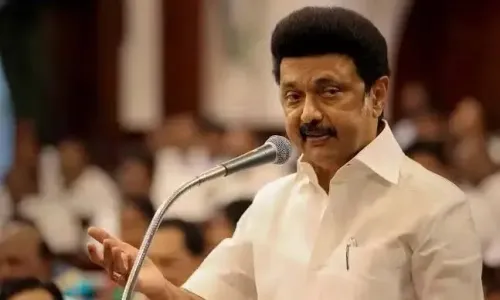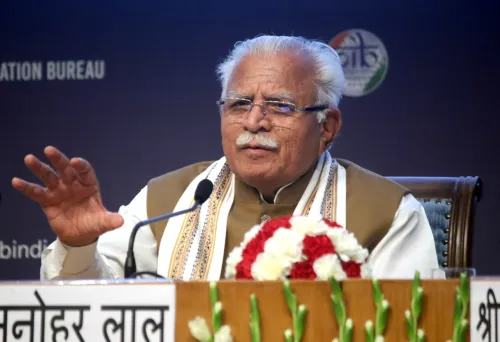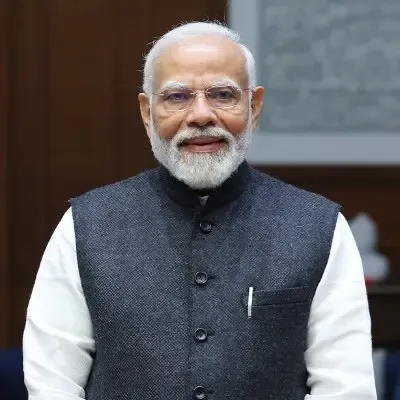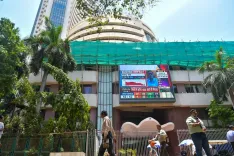Should There Be Double Standards on Energy Trade? India Reacts to EU's Sanctions Package Against Russia
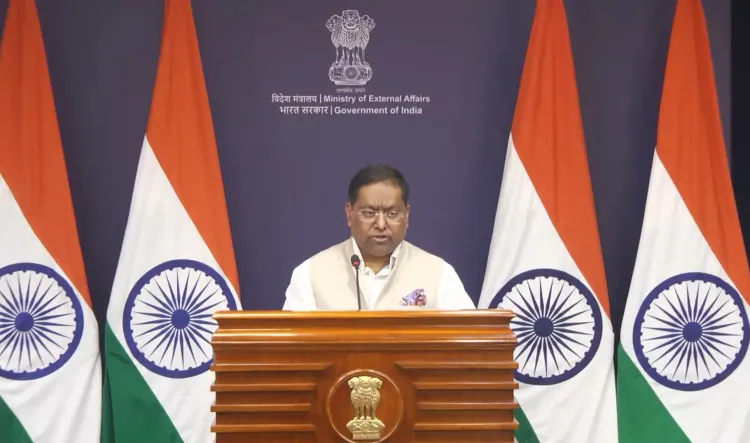
Synopsis
Key Takeaways
- India opposes unilateral sanctions.
- Energy security is a top priority for India.
- The EU sanctions focus on multiple sectors.
- Diversification of oil sources is crucial.
- Russia responds strongly to EU measures.
New Delhi, July 18 (NationPress) Following the European Union's (EU) announcement of an 18th round of sanctions against Russia due to its invasion of Ukraine, India asserted its stance on Friday by declaring that it does not endorse any unilateral sanctions and emphasized that there should be no double standards, particularly regarding energy trade.
"We have acknowledged the recent sanctions issued by the European Union. India does not support any unilateral measures. We are a responsible participant and remain fully committed to our legal responsibilities," stated Randhir Jaiswal, spokesperson for the Ministry of External Affairs (MEA), while responding to inquiries from the media regarding the matter.
"The Indian government views the provision of energy security as a critical obligation to fulfill the essential needs of its population. We must emphasize that there should be no double standards, especially in energy trade," he added.
The EU's 18th sanctions package aims at five primary objectives: reducing Russia's energy revenues, targeting its banking sector, further crippling its military-industrial complex, enhancing anti-circumvention measures, and holding Russia accountable for its crimes against Ukrainian children and cultural heritage.
"With this new package, the tally of vessels in Russia's shadow fleet rises to 444, with individual listings surpassing 2,500. This package also imposes new sanctions on Belarus," the EU statement noted.
On Thursday, Union Minister of Petroleum and Natural Gas Hardeep Singh Puri stated that India has successfully diversified its oil procurement sources in the global market, which alleviates concerns over any US restrictions on Russian oil exports.
During the Urja Varta 2025 event, the minister remarked that India currently sources oil from 40 countries, compared to 27 in 2007, and that the global market is well-supplied.
"There is a substantial oil supply available. While Iran and Venezuela are currently under sanctions, will they remain so indefinitely? Numerous countries, including Brazil and Canada, are ramping up production. Therefore, I am not overly concerned about supply issues at this time. Our sources have been diversified," Puri mentioned.
The minister's comments were made in light of US President Donald Trump's announcement that secondary sanctions would be levied against countries purchasing Russian oil.
On July 15, Trump threatened to impose significant trade restrictions on Russia unless a peace agreement with Ukraine is reached within 50 days. He indicated that US tariffs on Russian exports would rise to 100 percent and threatened secondary sanctions on countries like India and China that import oil from Russia.
Meanwhile, Moscow characterized the sanctions as unlawful and stressed that it would evaluate the latest package to mitigate its effects.
"We continue to observe a consistent anti-Russian approach from Europe. We have repeatedly stated that we consider these unilateral restrictions illegal and oppose them," Dmitry Peskov, Kremlin spokesperson, told TASS.
Peskov further indicated that Russian authorities will review the new European sanctions package to minimize its repercussions.
"Undoubtedly, the new package will require thorough analysis to mitigate its impact," Peskov stated.
He also pointed out that over time, Russia has developed a certain level of immunity to sanctions due to repeated Western restrictions.
"We have indeed built a form of resilience to sanctions and adapted to living under such conditions," he added.


